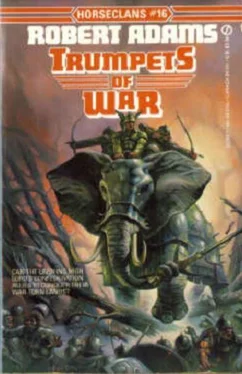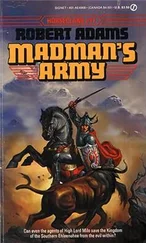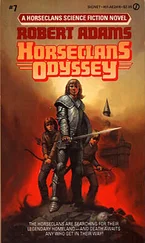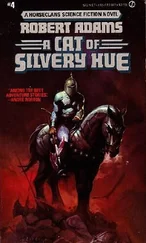“He has a very vivid imagination, my lord Thoheeks,” said Tomos, “though how he twisted what little was said into such a scenario is a matter I cannot fathom.”
“All right, what was said, then?” snapped Grahvos. “Let’s hear your version of it.”
Tomos told it, he told it all. The thoheeks stood for a long moment after Gonsalos had ceased to speak, then he slowly shook his head, sank into the chair, picked up the filled goblet and took a lengthy pull of the wine it held. At last, he began to speak.
“Hahkmukos was among the first to rejoin Zastros when he returned from his years of exile in the south, in the Witch Lands, whence he got his wife, the Lady Lilyuhn. Both she and Zastros liked Hahkmukos, and so he gained preferment, going from one high post on Zastros’ staff to another. During the invasion, he served as chief quartermaster of the army, and in that capacity he became very wealthy, so wealthy, in fact, that he alone knows the full extent of that wealth.”
“Yes, my lord,” remarked Tomos, “and Thoheeks Portos is of the firm belief that gift or promise of some of those ill-gotten gains went far toward assuring Thoheeks Hahkmukos confirmation by Council.”
Grahvos made a face and sighed, squirming a bit in his chair. “I sincerely wish I could say that I owned full faith in the incorruptibility of all my peers on Council, Tomos, but I must be realistic and candid. Even thoheeksee have their price, especially must this be so of men who just now own their rank, lands that are not yet fully productive and cities, towns and holds that are a shambles, where they still stand at all.
“Thoheeks Hahkmukos is arrogant and not very likable; moreover, he seems to have made an enemy with everythrahkmeh he ground out of his various sinecures under Zastros, so the first vote went heavily against his confirmation, and there never would’ve even been a second hearing and vote had he not suddenly and miraculously acquired some active and very vocal partisans on Council. It is not only possible but very probable, to my way of thinking, that ounces of gold had vast influence on his acquisitions of ‘friends on Council’ to argue his case and to, eventually, vote in favor of his confirmation. Wisely, he and his agents never committed the cardinal error of approaching me or my closer associates—the Thoheeksee Bahos, Mahvros, Sitheeros, Iahkovos and Vahsilios—and it is significant, perhaps, that none of us championed him or cast positive votes on either occasion.
“So, yes, Thoheeks Portos is almost certainly correct in his assumption that Thoheeks Hahkmukos bought his title and lands, paid for them in specie and by most dishonorable means. But, still, I wish that Portos would be careful to whom he tells this dirty little secret, for nothing must be allowed to stain the Council; our sway is not yet sufficiently secure to be able to assuredly weather any really big and open scandal, not yet.”
“To the best of my knowledge, Lord Grahvos,” Tomos assured him, “I am the only officer that Thoheeks Portos has seen fit to take into his confidence in this smelly matter.”
Grahvos nodded and growled, “Good andgood again, boy. Let it stay that way; a lot may be riding on it.
“Now, that matter aside, what of Thoheeks Hahkmukos’ complaint to me that you refused to allow him to take more than an absolute minimum of personal baggage and attendants with the army on the march?”
Tomos simply called for a horse, led the way to where the wagons, pack train and retinue still waited and said, “My lord Thoheeks, I but thought this a bit excessive, besides which, ox-drawn transport would slow the rate of march.”
“And that is what you told Hahkmukos, Tomos?” asked Grahvos in a tight voice.
“Yes, Lord Grahvos. I told him that he might add one common-size wagon to the force trains, plus, of course, the baggage for his own troops.”
“Sounds generous enough,” said Grahvos. “I’ve set off on campaign with far less, many’s the time. And if he wanted more servants, he could just mount them on mules. I don’t suppose you would object to that, eh? Of course not. Then I can’t say that I understand his flurry of objections on this part of the matter; he’s had fully enough experience with armies to know that speed and flexibility are quite often important factors and that military commanders must always have the final word regarding the sizes of their trains, consequently. The way he told the tale to me, you were denying him everything save a canvas fly, a blanket roll and a pisspot. I’ll go back and have a few words with him.”
The thoheeks first made to rein about, then turned back. “My boy, do you think you might be able to get Hahkmukos’ mounted force away from this train for a few hours on some pretext or other?”
“Easily, my lord,” said Tomos. “Thoheeks Portos had mentioned that were they to march with us, he wanted one of his officers to inspect them, their mounts, their weapons and their supplies.”
“Very good, very good, Tomos.” Grahvos smiled. “You see, I had not ere this been aware of just how much Hahkmukos had brought out of Karaleenos. There will shortly be a detachment of Council Guardsmen and some others from the citadel down here to offload those wagons and examine the ladings; they will have authority to seize anything that resembles loot from Karaleenos or property of Zastros’ army, the former to be returned to King Zenos and the latter to become property of our government, as it rightfully should be.”
“One thing, my lord,” said Tomos. “Hahkmukos made mention during my brief meeting with him that this”—he waved an arm along the lines of wagons and pack animals—“is but a part of his holdings, and that he would send for the rest when he is installed in his place.”
“Thank you, Tomos,” replied Grahvos gravely. “I’ll have that matter checked out, too. I’ve the idea that this thoheekseeahn will end being far more expensive than our Hahkmukos ever dreamed.”
The encampment was set up just out of easy engine range from the walls of Ahndropolis. Cavalry ranged out in patrols, but no attempt was made to interdict the city and no entrenchments were begun. None of this pleased Hahkmukos, thoheeks-to-be, but only his sour looks and a few petulant low-voiced whines announced the fact; he had learned on the march to keep a low profile and to do so in silence.
Thoheeks Grahvos, shivering despite the heavy fur-trimmed cloak wrapped about him, growled at the thoheeks -designate, “All right, damn you, we’re arrived and you’re still alive, so do you still harbor the asinine notion that everyone from Tomos Gonsalos on down is out to kill you? Not that that seems such a bad idea to me, here and now. I’m getting too old, too full of aches and pains, for winter warring or campaigning, and it’s only because of you that I’m here, you sad, sniveling specimen.”
As they stood there, the huge gates cracked enough to allow for the exit of three mounted and armored men, one of them bearing a headless lanceshaft to which had been attached a rippling banner of snowy-white silk.
“Hmm,” grunted Thoheeks Grahvos. “Our herald’s bringing back some company, it would seem. I mean to go and meet them. You may go where you wish . . . should you choose hell, let me know, I’ll help you gladly.” So saying, he mounted his mule and rode off, leaving only Hahkmukos and the servant who held the reins of the showy palfrey atop the low hillock.
By the time the slow but comfortably gaited mule arrived before the command pavilion, the herald and the visitors were already inside with the commanders and a strong guard stood all about the enclosure, but Thoheeks Grahvos was, of course, passed with alacrity and without question.
Waving over a guard officer, Grahvos ordered, “Should Thoheeks Hahkmukos arrive, let him in . . . but be certain to first disarm him, and search him, too, but courteously, mind you.”
Читать дальше












